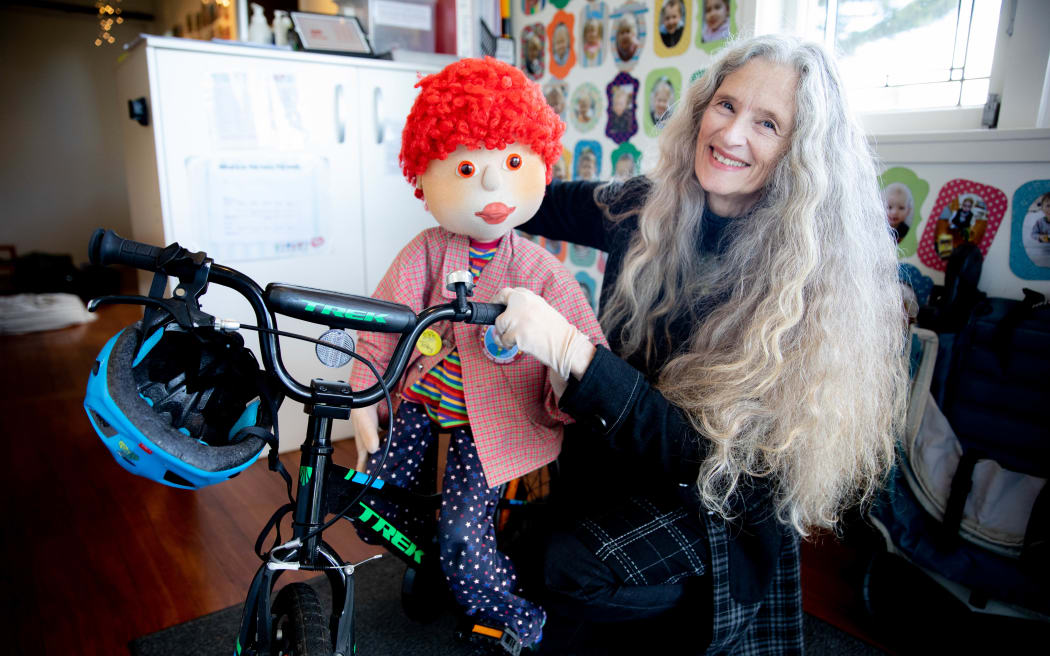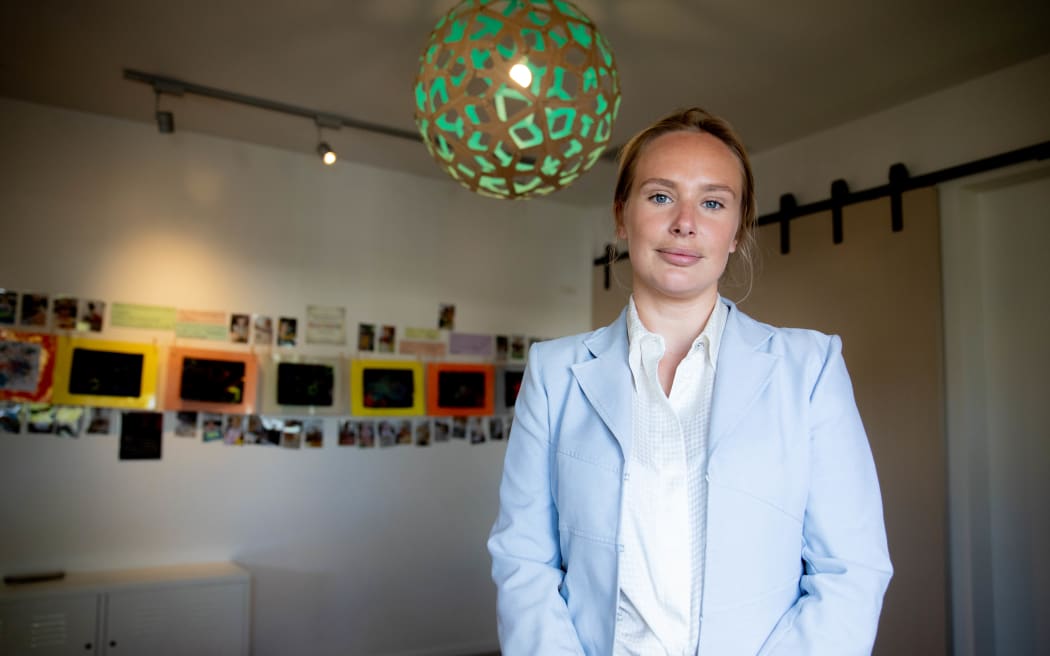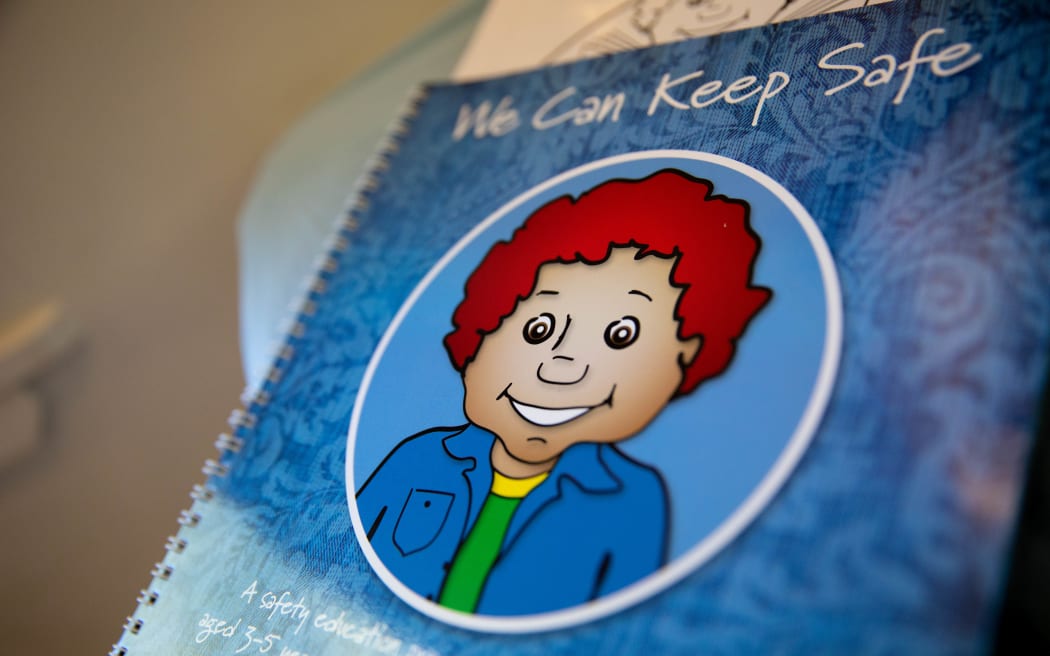A charity that's been supporting sexual abuse survivors in Northland and Auckland for nearly 30 years is fighting for survival.
HELP Auckland, which has been running for nearly 30 years, is calling for urgent support to keep its personal safety courses, which run in preschools, afloat to combat Aotearoa's high rates of childhood sexual abuse.
The Ministry of Social Development's latest survey from 2022 showed one in five young people have reported a sexual assault at least once in their lifetime.
HELP Auckland's We Can Keep Safe programme was in action on Tuesday morning at The Rumpus Room day care in Point Chevalier.
Once a week for five weeks, parents and their three to five-year-olds gather to learn about body ownership, simple touching rules, how to say "stop", and tell an adult if something happened.
All of that had to be done in a way that was age appropriate, so programme director Jude Bishop brought in the help of a puppet named Toby.

HELP We Can Keep Safe programme director Jude Bishop and her puppet Toby. Photo: RNZ / Marika Khabazi
Moira Jackson is a retired pediatric clinical psychologist and teacher, but she was at The Rumpus Room in her other role as grandmother to Quinn.
She said the programme was life changing.
"My own children had this kind of support 40-odd years ago and I've been astounded that it's not in schools nationwide, because it should be, it's absolutely brilliant."
That was echoed by a full turnout squeezing into the classroom.
Rumpus Room head teacher Kalpana Prasad said since they first ran the programme in 2021, there had been huge demand, with all parents signing up to take part this year.
"This is such a tender age for the children and it's just something that really leaves an impression for a very long term in their lives."
But despite its success for nearly 30 years, the programme created by psychologists now faces an uncertain future.
It costs about $100,000 a year to run, most of that came from ACC since 2015, but since July this year that is no longer the case.

HELP fundraising manager Sarah Mckeznie. Photo: RNZ / Marika Khabazi
HELP fundraising manager Sarah Mckenzie said it would be difficult to find the funding because parents and pre-schools were not in a position to foot the bill.
"I think there's like between 250 and 280 early childhood education centres that have closed over the last two years, so we're seeing that they're not in a position to be funding this programme.
"The cost of living is obviously exceptionally high and parents have been stung quite a lot."
Mckenzie said they had funding for the next few months but then they would have to make a decision on whether they could keep going.
"It will be devastating if this course can't run anymore. We'd like it to be continuing for as long as possible, especially because there's so much need for it.
"There will be communities who will be easily able to afford it, but we need to have it accessible to people who actually can't afford [it]."

A brochure for HELP Auckland's We Can Keep Safe programme, which helps children learn about body ownership, simple touching rules, how to say "stop", and tell an adult if something happened. Photo: RNZ / Marika Khabazi
In a statement, ACC prevention and partnerships deputy chief executive Tane Cassidy said ACC valued the charity's programme, but recently they had been looking at expanding injury prevention approaches which were sustainable in the long-term.
In 2021, ACC approved a $44.9 million investment over four years for the implementation of a primary prevention system in line with Te Aorerekura - Aotearoa's first national strategy aimed at eliminating family and sexual violence, Cassidy said.
"Since early 2021, ACC has been in discussions with HELP Auckland about our move to support this new approach, and advised that we would no longer be able to fund the We Can Keep Safe programme due to our shift towards investing in communities to mobilise prevention action," he said.
"Our new approach to primary prevention of sexual violence extends education beyond the classroom to include the wider community and parents.
"A primary prevention approach is the best option for making meaningful improvements to wellbeing and reducing the incidence, impact, and harm of family and sexual violence."
ACC currently funded five community-led initiatives to prevent child sexual abuse, Cassidy said.

